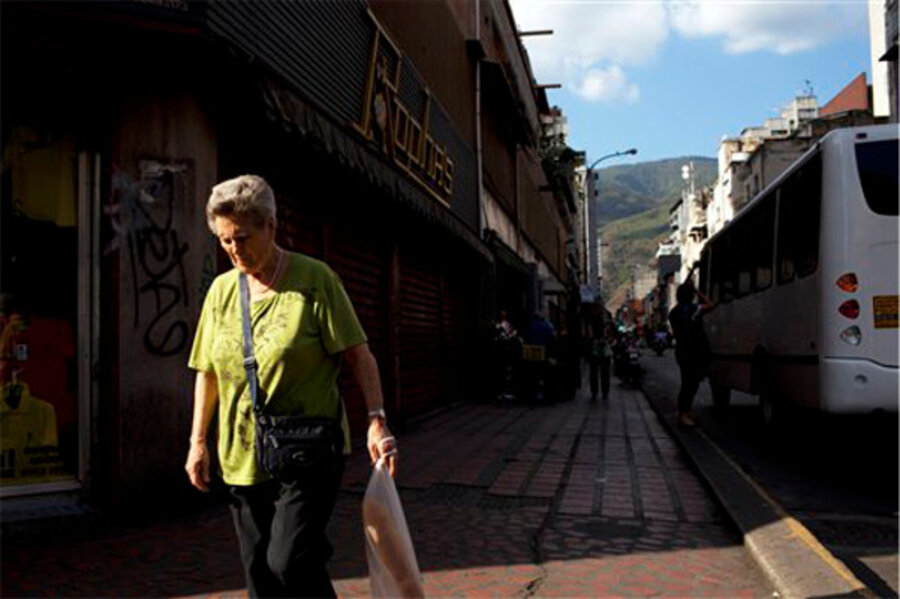Got milk? Get fingerprinted, then shop, says Venezuelan president
Loading...
| CARACAS, Venezuela
Venezuelans could soon have to scan their fingerprints to buy bread.
President Nicolas Maduro says a mandatory fingerprinting system is being implemented at grocery stores to combat food shortages by keeping people from buying too much of a single item. He calls it an "anti-fraud system" like the fingerprint scan the country uses for voting.
In announcing the plan late Wednesday, Maduro did not say when the system would take effect, but other administration officials suggested it could be in place by December or January.
The move was met with skepticism. Critics said the new system is tantamount to rationing and constitutes a breach of privacy. Others simply wondered if anything short of a systemic overhaul of the economy could help the socialist South American country's chronically bare shelves.
Venezuela has been grappling with shortages of basic goods like cooking oil and flour for more than a year. In the spring, the administration tried out a similar system in government-run supermarkets on a voluntary basis.
Rigid currency controls and a shortage of U.S. dollars have made it increasingly difficult for Venezuelans to find imported products. Price controls don't help either, with producers complaining that some goods are priced too low to make a profit and justify production.
The administration blames the shortages both on companies speculating with an eye toward future profits and on black market vendors who buy groceries at subsidized prices and illegally resell them for several times the amount.
In his announcement, Maduro floated the possibility of easing some of the country's price controls, though he did not provide specifics. Defenders of the controls say that by keeping prices for basic goods artificially low, Venezuela helps the nation's poor lead more dignified lives.
Last week, Venezuela began closing its border with Colombia at night in an effort to cut down on smuggling, which Maduro has said diverts nearly half of Venezuela's food.
As of January, more than a quarter of basic staples were out of stock in Venezuelan stores, according to the central bank's scarcity index.
___
Hannah Dreier on Twitter: https://twitter.com/hannahdreier
Copyright 2014 The Associated Press. All rights reserved. This material may not be published, broadcast, rewritten or redistributed.







